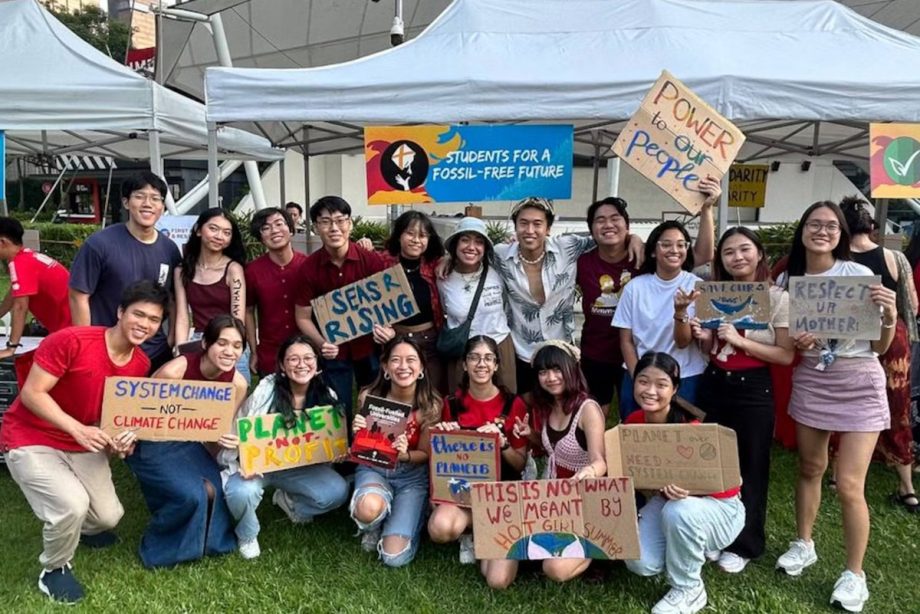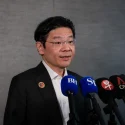When I was approached for a feature on my climate activism work, particularly with Students for a Fossil Free Future (S4F), the last thing one probably expected was for me to break the news that the movement was slowing down.
Some say this was a long time coming; we had struggled with sustaining recruitment and momentum for our Fossil Free chapters since launching our first campaign in 2017. Our initial plans to expand the student-led fossil fuel divestment movement into the other local universities beyond liberal arts college Yale-NUS, which has since closed grew increasingly difficult. We had heard this sentiment countless times: in Singapore, how can we expect to change an institution so huge when we were all but a group of students?
Many may have forgotten the rich and electrifying legacy of student movements in Singapore – where youths fought for causes that they believed in, sometimes bearing consequences for their actions. In 1954, 900 students from Chinese middle schools walked in solidarity with eight student representatives to the British Governor Office to hand over a petition for National Service exemptions, which ultimately ended in a violent clash with riot police, though it also managed to successfully resist attempts at compulsory conscription efforts by the colonial government. The equivalent of today’s National University of Singapore Students’ Union (NUSSU) led a public campaign in the 1970s to collect signatures challenging a government-imposed bus fare hike.
This legacy lives on till today: earlier this year, 124 students and alumni staged a memorial in NUS in solidarity with the Palestinian liberation movement. They mourned and honoured Palestinian students murdered in Israel’s warfare and genocide in Gaza, and called for Singapore universities to reconsider ties with Israeli institutions – some who participated then had their homes raided and faced questioning by the police for organising the memorial without a permit.
I also recall the important moments from our movement: distributing flyers to students at the NUS career fair against greenwashing roles in fossil fuel companies. Many we spoke to agreed with us, that they too wanted a job that made the world better and their conscience clear. I thought about the stories of our alumni who came before us, who camped at the library, looking over their shoulders as they discussed the beginnings of 64-page report, Fossil-Fuelled Universities that we would come to publish in 2022.
On 17 January 2022, brown envelopes in hand, we delivered the report to each university office across the island exposing the ways they collaborated with the fossil fuel industry. Our findings and calls for universities to cut these harmful ties appeared on multiple national news outlets. In the next two weeks, we hosted in-person engagement sessions and reached 25,000 pairs of eyes on social media. This and more were only possible with our campaign team of more than 60 individuals.
Despite the momentum generated, the universities remained unresponsive; only NUS and the Singapore Management University (SMU) responded to us, but sidestepped our calls to re-examine institutional endorsement of the fossil fuel industry, simply pointing us to their consumption-based sustainability reports of energy reduction and recycling efforts.






